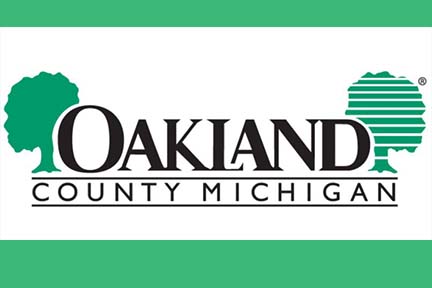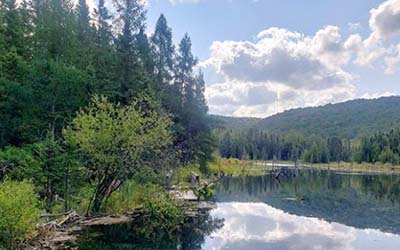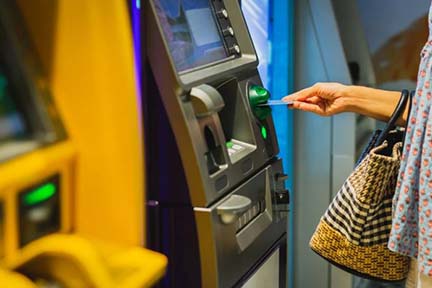
Oakland County Launches Tech Collaboration
Oakland County Launches Tech Collaboration Featuring Keystone Companies to Strengthen Regional Innovation
- The Oakland County Tech Collaboration is an ecosystem of tech companies, innovators, suppliers, academic institutions and county government creating connections and spurring economic growth in robotics integration, IT and computer services, research, engineering and design.
- Five of the county’s largest tech firms have taken on the role of “Keystone company” to strengthen the tech ecosystem: FANUC America, HTC Global Services, JR Automation, OneStream, and RGBSI. Learn more here: https://youtu.be/u0omSoGZ5L8.
- The Oakland County Tech Collaboration will host a series of tech collaboration events. For more click on oakgov.com/octechcollaboration.
Pontiac, Mich. – Oakland County has launched the Oakland County Tech Collaboration, a strategic initiative aimed at supporting and accelerating the growth of the county’s technology ecosystem powered by Oakland County Economic Development Business Retention & Growth unit.
“Oakland County is taking bold steps to establish itself as a national leader in technology innovation by strengthening our strategic focus on research, engineering and design, IT/computer services and robotics integration,” County Executive Dave Coulter said.
The Oakland County Tech Collaboration is an ecosystem of tech companies, innovators, suppliers, academic institutions and county government working to create connections, strengthen the ecosystem and spur economic growth in these key areas:
- Research, Engineering, and Design
- IT and Computer Service
- Robotics Integration
These industries are pivotal to establishing Oakland County as a competitive technology hub. Five of the county’s largest tech firms have taken on the role of “Keystone company” to strengthen the tech ecosystem.
The Keystone Companies, including FANUC America, HTC Global Services, JR Automation, OneStream, and RGBSI, represent a wide array of expertise in these industries, from cutting-edge research and product design to AI and advanced IT software solutions. Their collective efforts will support the retention and expansion of the tech industry, attract new talent, and foster a collaborative environment that nurtures innovation and attracts new investments.
“These Keystone Companies are not only leaders in their fields but are committed to building a thriving tech ecosystem that will create new jobs, attract investment and ensure our region’s continued economic growth,” Coulter said.
The Oakland County Tech Collaboration will host a series of events, such as the Edu2B Tech Collaboration Series connecting business with higher education resources and opportunities at the university level connecting small tech companies to larger tech companies. Those events are scheduled as follows:
- April 17 at Lawrence Technological University, Southfield
- Sept. 18 at Walsh College, Troy
- Nov. 6 at Oakland Community College, Auburn Hills
For more information about the Oakland County Tech Collaboration and upcoming events, please visit oakgov.com/octechcollaboration.
“Our focus on strengthening these three key industries is essential to the continued success of our regional economy,” said Greg Doyle, manager of Business Retention & Growth for Oakland County. “By bringing together top businesses in IT, computer services, research, engineering, and design, and robotics, we’re creating a dynamic environment for innovation and fostering the kind of partnerships that will drive economic growth for years to come.”
About Oakland County
Oakland County, located in southeastern Michigan, is a vibrant hub for innovation, research, technology, and manufacturing. With a strong focus on advancing industries such as IT/computer services, robotics, and engineering, Oakland County is committed to becoming a leading technology region in the U.S., offering businesses the tools, talent, and resources needed to thrive.






 Several state parks in southern Michigan will host stewardship workdays, where volunteers help remove invasive plants that threaten high-quality ecosystems. It’s a great way to get outside and feel good about doing good!
Several state parks in southern Michigan will host stewardship workdays, where volunteers help remove invasive plants that threaten high-quality ecosystems. It’s a great way to get outside and feel good about doing good!



